Célia Picard and Hannes Schreckensberger
Under The Seven Planets Parade, 2022
Célia Picard and Hannes Schreckensberger
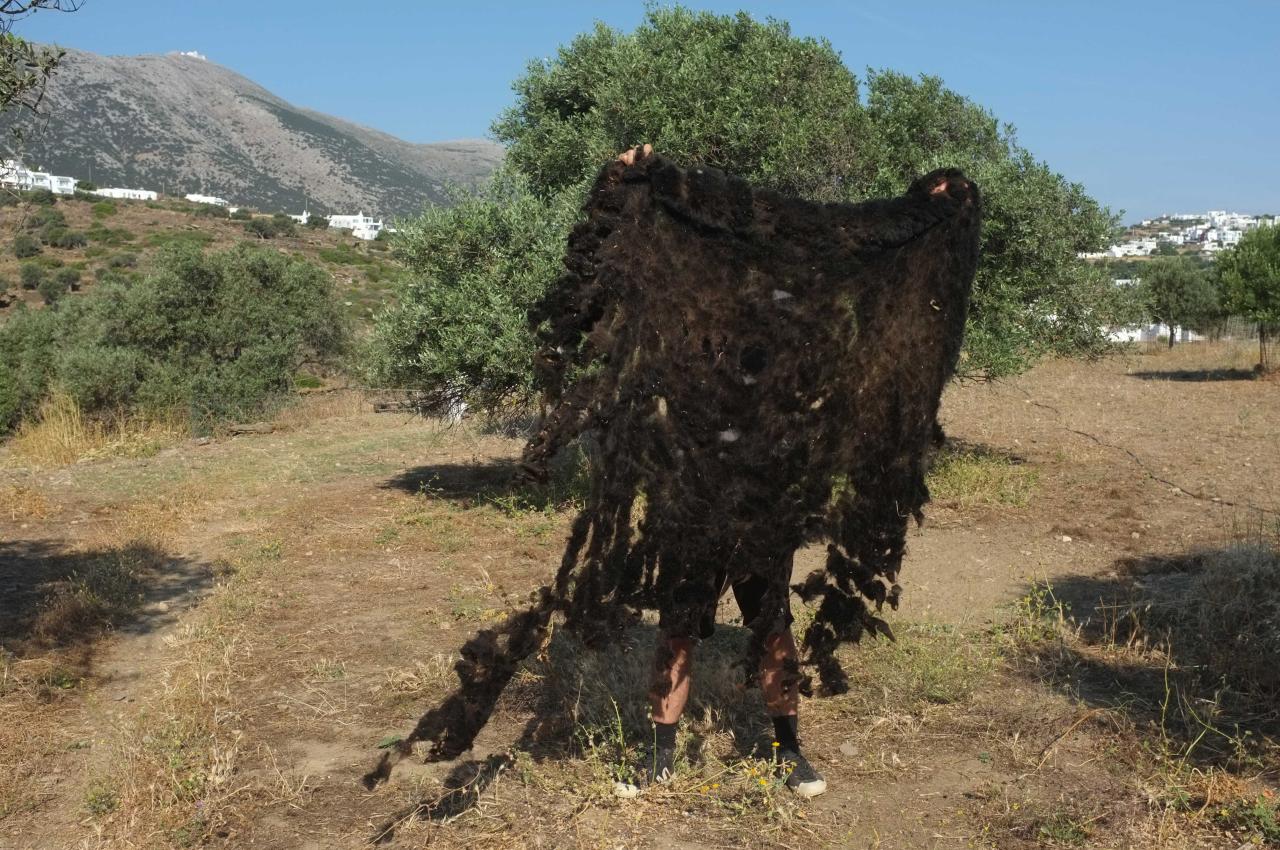
© All rights reserved - Célia Picard and Hannes Schreckensberger
Célia Picard and Hannes Schreckensberger create habitable objects and devices that speak to the present. Working with space and installation, their work intimately links issues related to things and their manufacture to those of contemporary art through studies of the material world, the promises of modernity and collective mythology. From the vernacular to the digital, from art history to scientific research, the Franco-Austrian duo looks to the past to better understand the future. They provide us here with a narrative of their explorations, research work and production during a three-month residency in Greece.
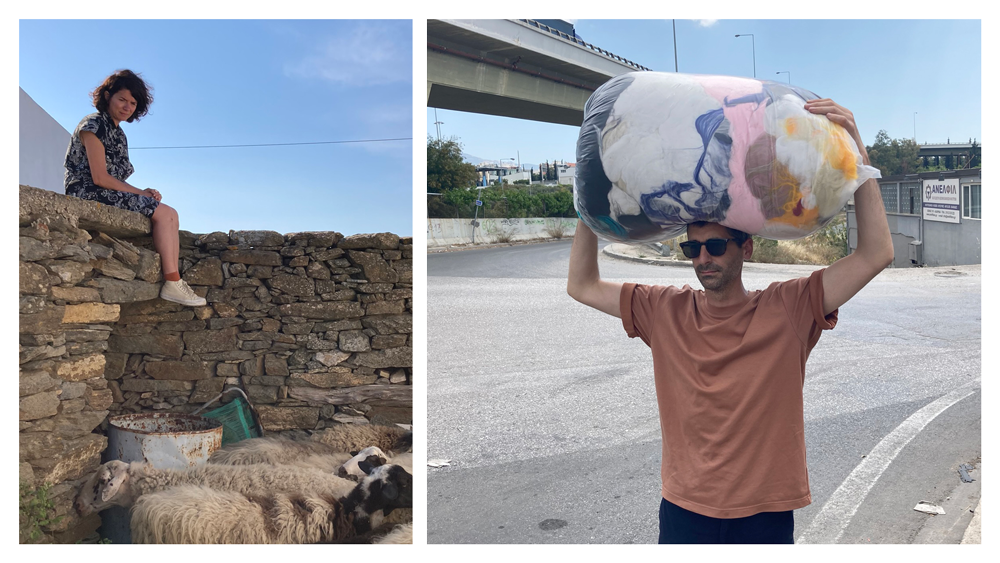
© All rights reserved - Célia Picard and Hannes Schreckensberger
Since 2019, we’ve been working on the notion of shelter, as a space and time for reflection amidst surrounding turmoil. We create, among other things, large-scale, enveloping, textile works bearing different types of protective powers. The context of these works’ production is very important information in our art. It determines both invoked powers and our production strategy.
We prefer the felting method dubbed “wet felting.” We find this technique fascinating as it’s based on a minimum of material techniques and a know-how that makes efficient use of materials and mechanical force. The technique is universal, linking us to the most ancient fabrics made by humans, to yurt-making, and to the complex production of one-piece clothing. We enjoy the process of learning new techniques, exploring the world of online tutorials, watching ethnographic documentaries and, of course, going out to learn in detail by meeting people who work with felt.
From May to July 2022, we went to Greece with the intention of pursuing this research. We were based in Athens.

The first month involved collecting information and meeting people. We inspected buildings, ruins, and museums in search of symbols. We noticed frequent signs evoking the world of flora and fauna. These figures, often in the background of pieces of pottery, bas reliefs and embroidery, speak to an ancestral community erased by modernity.
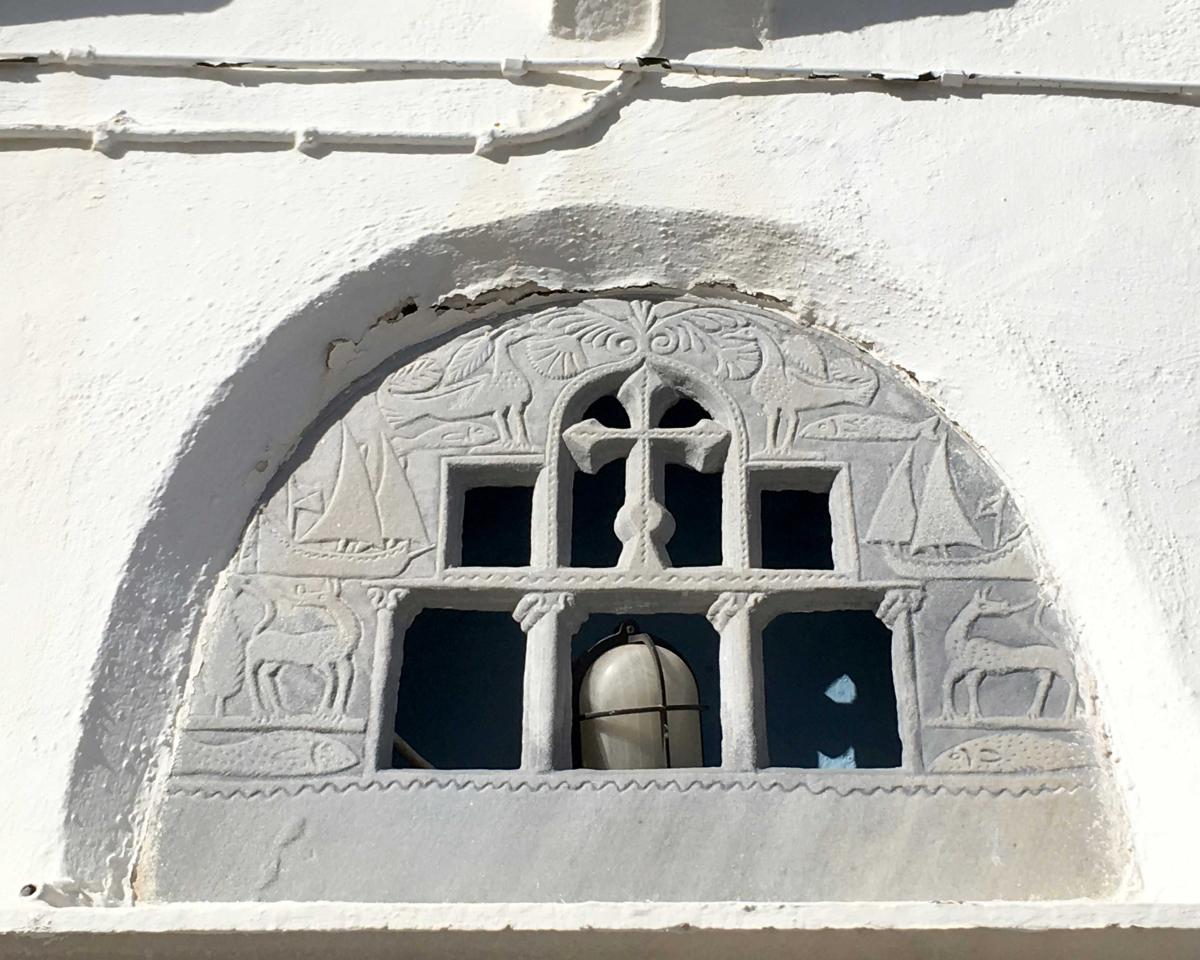
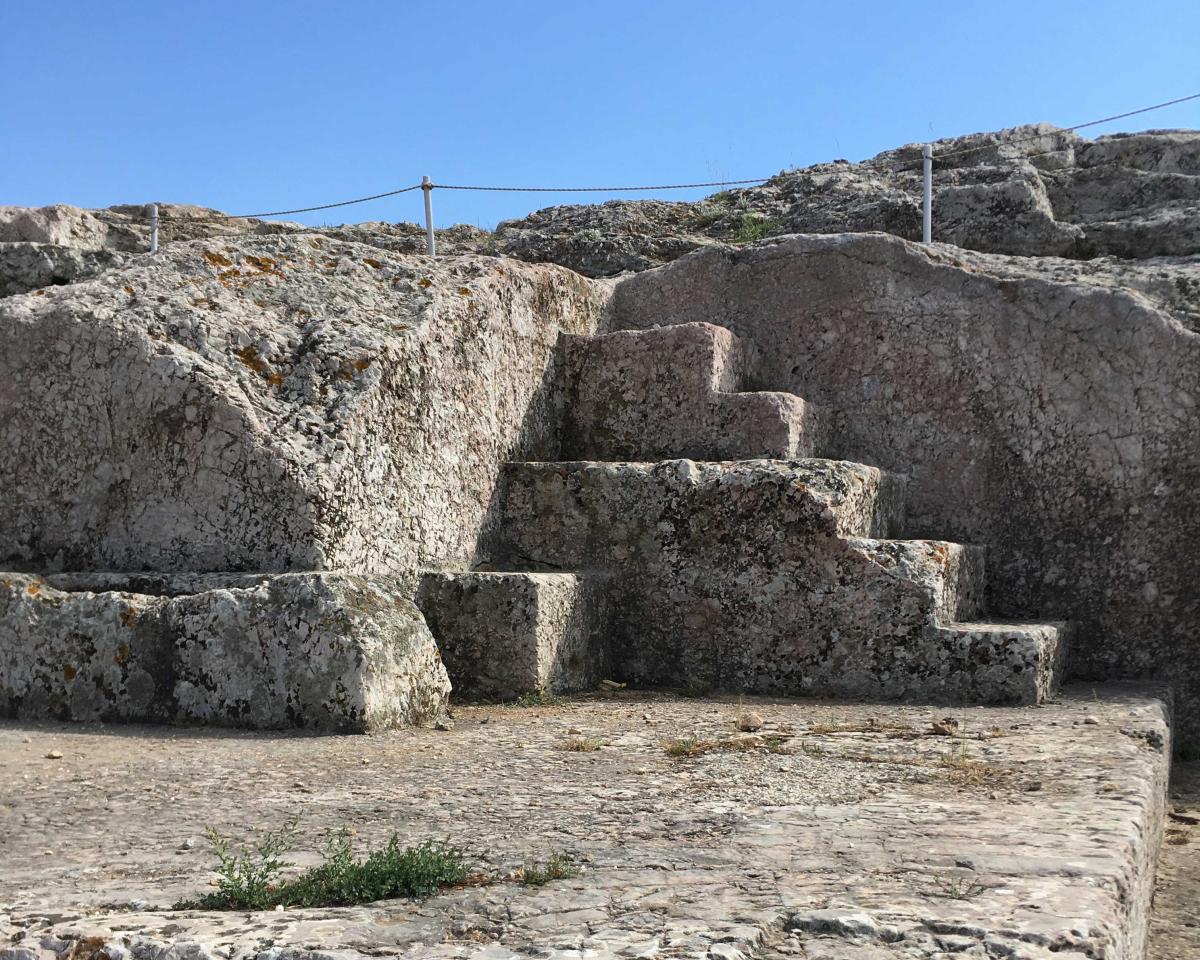
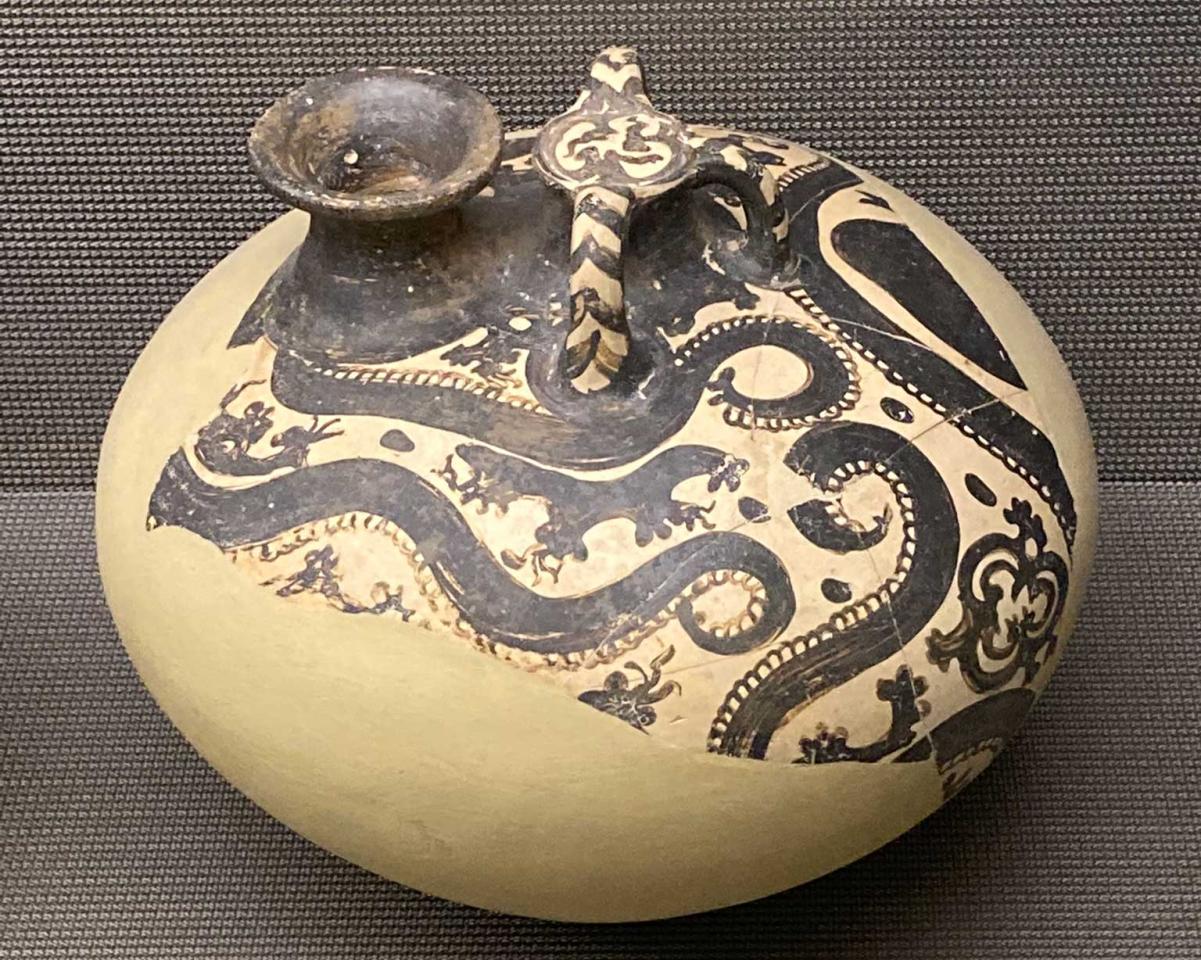
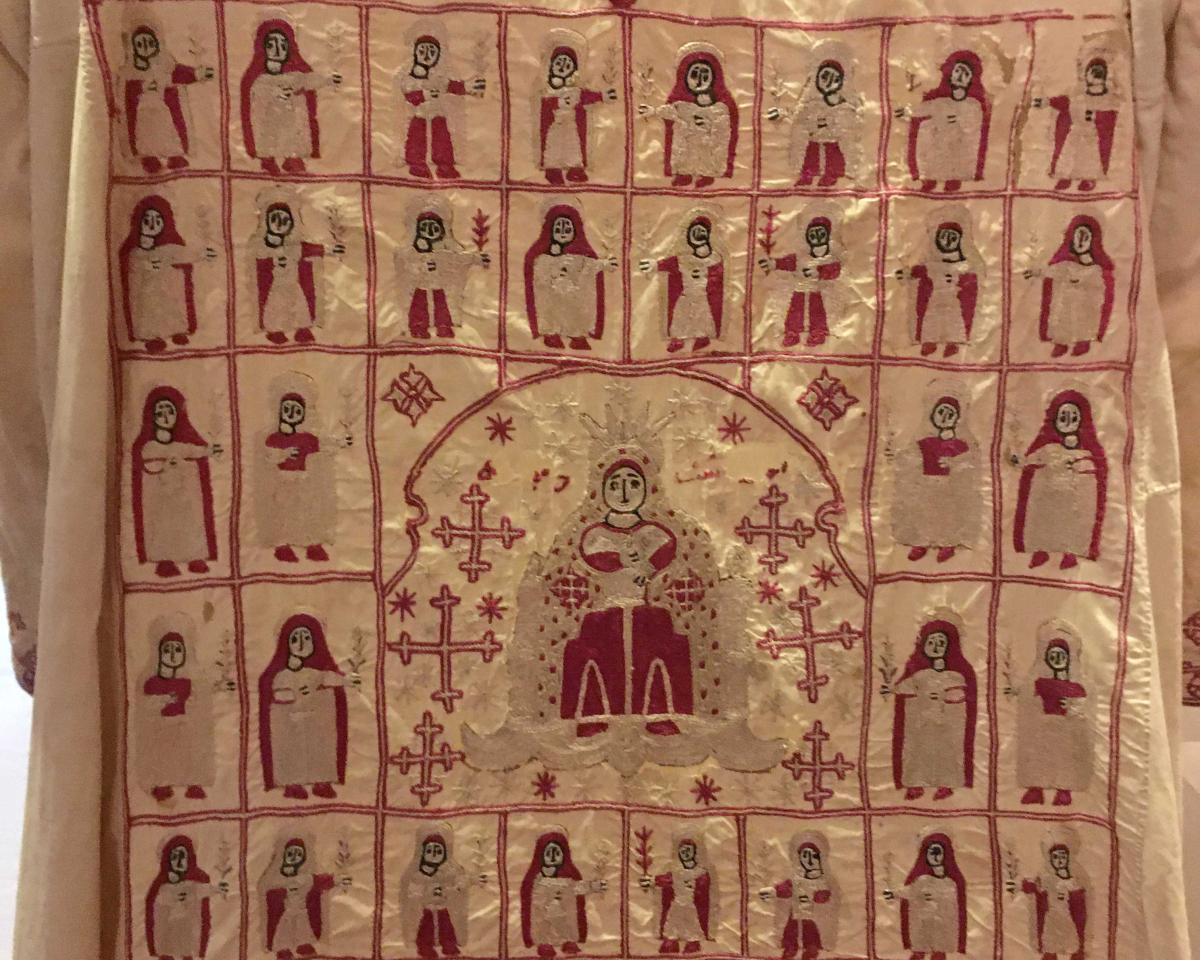
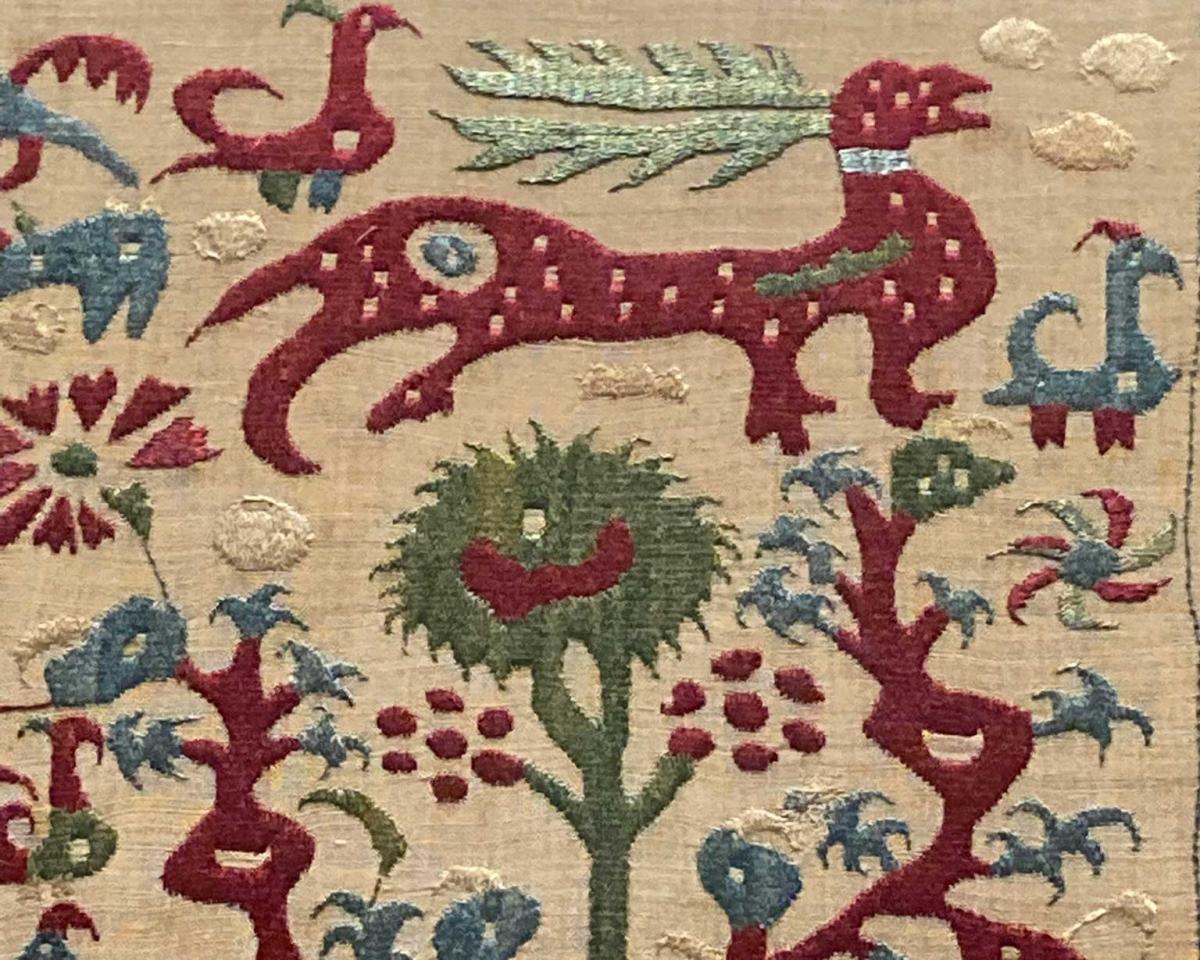
We contacted artisans, artists, companies and farmers trying to find Greek wool. We had to describe our project over and over. It’s not easy to find Greek wool, which is too coarse compared to wool from New Zealand. It’s often thrown out or used as pest repellant in olive fields. In the end, only a small family company making felt for industrial use had what we were looking for, but only in grey (we would find a pinkish color later).

This persuaded us, the second month, to go out looking for raw wool during shearing. On the rural islands of Sifnos and Tinos, we were able to collect raw wool from a number of small farmers. Farmers on this island generally have only a small flock of sheep to make cheese for their own consumption, and for clearing brush in the olive orchards. We established contact step by step with several farmers and were able to collect wool that had just been shorn. Little by little, we filled large bags, sorting the wool as we went along. By talking to each of the farmers, we acquired a multitude of details on the local art of working wool, from pre-washing sheep in the sea to memories of coarse sweaters worn by children.
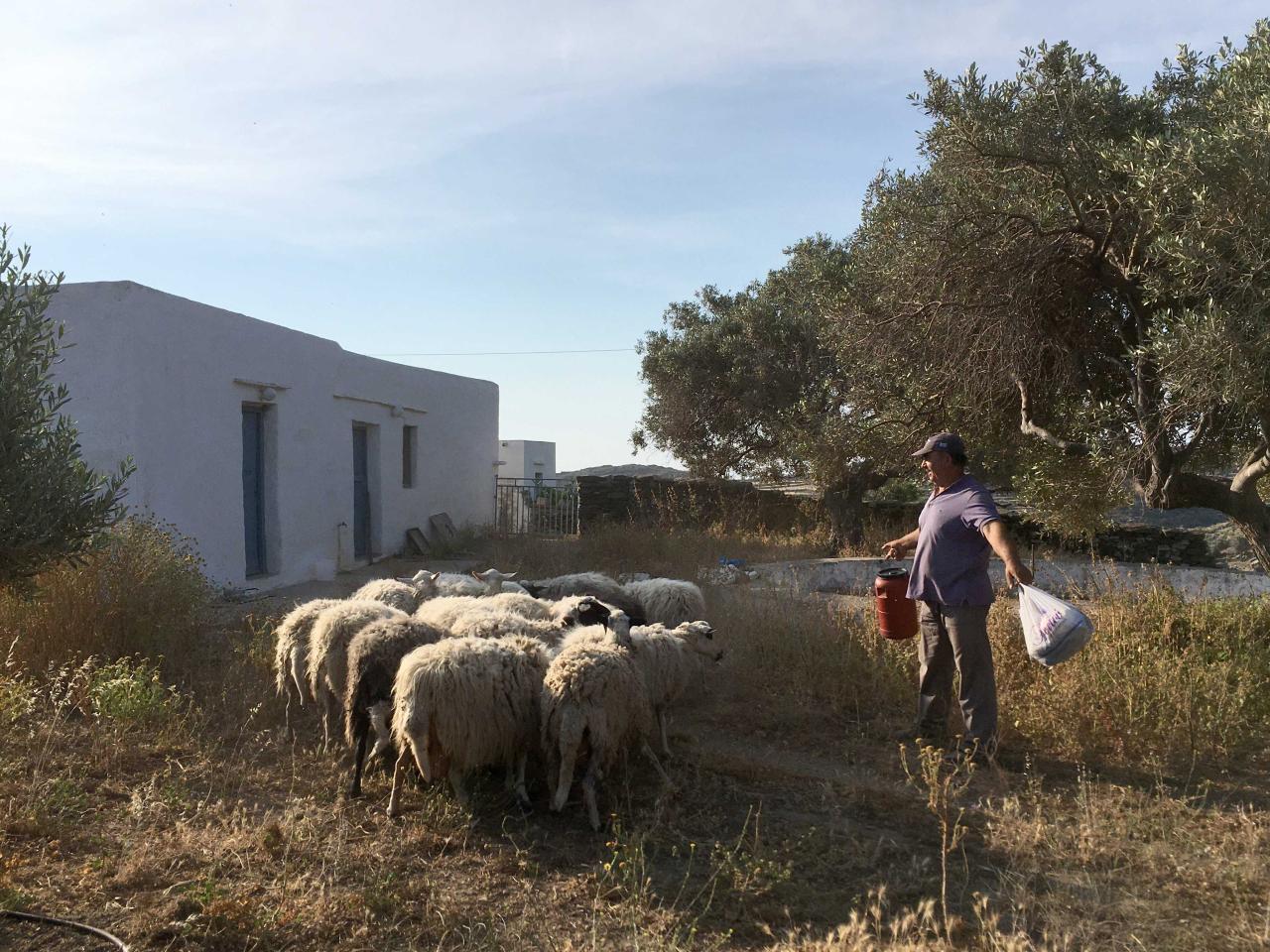
© All rights reserved - Célia Picard and Hannes Schreckensberger
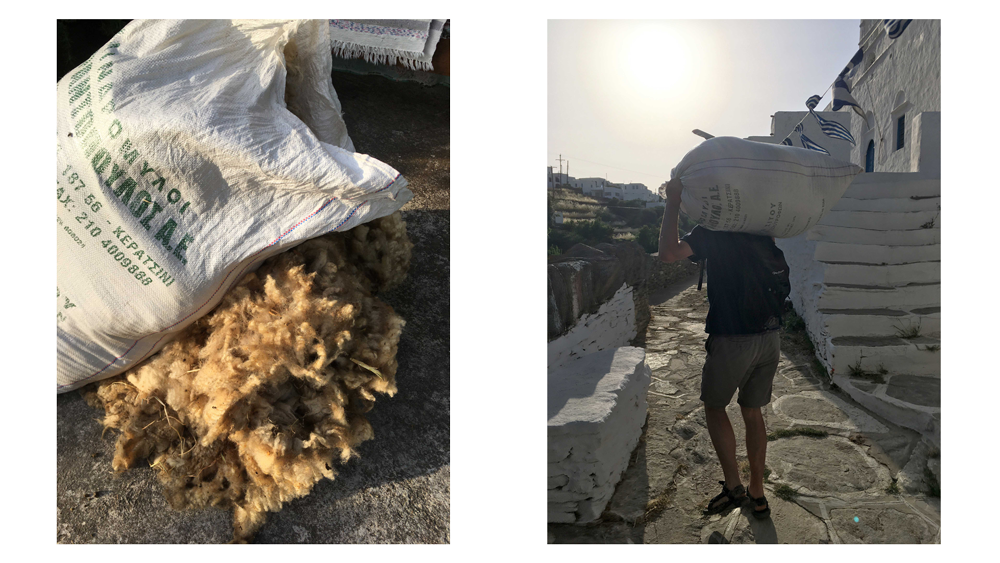
© All rights reserved - Célia Picard and Hannes Schreckensberger

For the third and final month, we more-or-less shut ourselves up in the artist-run-space called the "One Minute Space". It was July. The temperature in Athens transformed the external world into a hostile place during the day. At any rate it was time to produce.
First, we de-greased the wool in warm water. It’s a long process, since each pack of wool requires several washing cycles. Then we carded the raw wool. To do this, we made the tools ourselves, basing them on the model for traditional wool combs. Next, following a daily ritual, we produced 7 hangings:
In the morning, we composed the motif with different colors of wool laid out on bubble wrap on a big table. We placed a second layer of wool on top of the first layer. We then repeated the operation five times, such that we had five crisscrossing layers of wool, offering thickness to the hanging. After a quick meal, we began felting the wool. This consists in getting the fibers to tangle and become dense to form the fabric. We start by watering the wool fiber with very hot water and savon de marseille, then we compress it by pressing delicately against the surface. We then massage it with our four hands to enable the matting of the fibers.
To further compact the material, we each pressed the wool in turn wrapped around a tube using the full weight of our bodies. In the evening, we took the hanging out into the street to rinse it in plain sight of the neighbors.
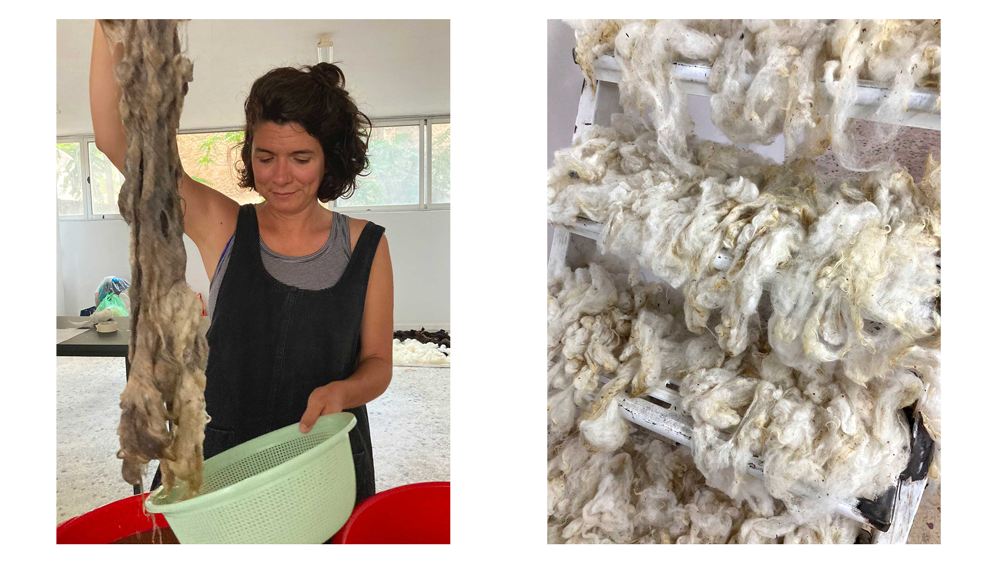
© Rights reserved - Célia Picard and Hannes Schreckensberger
© Rights reserved - Célia Picard and Hannes Schreckensberger
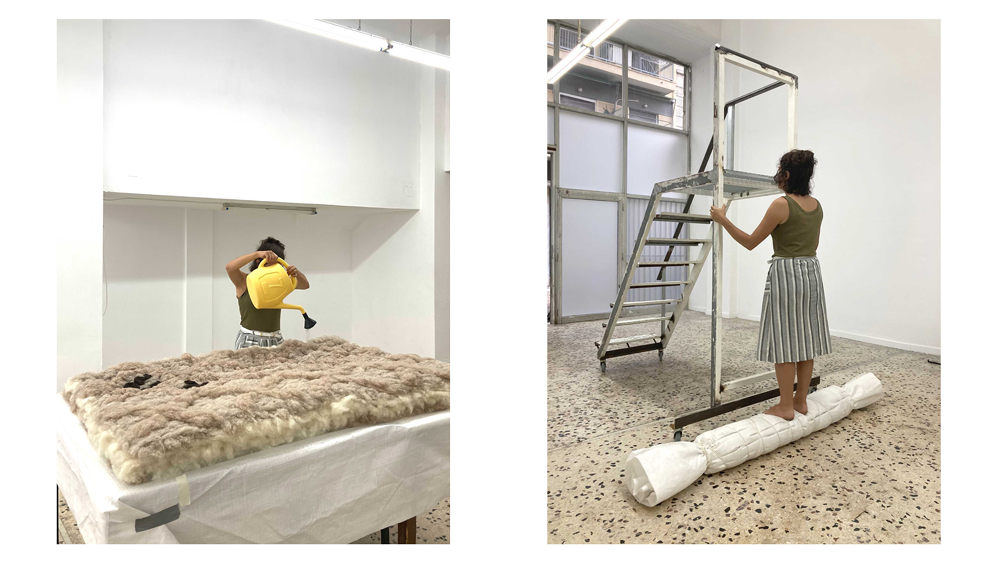
© Rights reserved - Célia Picard and Hannes Schreckensberger
The "One Minute Space" became our studio and living space. We were completely immersed in production. Because of the size of the hangings, it was also a physical feat of endurance. The final hangings barely had time to dry before we had to leave the site. We presented all of the hangings we produced alongside other pieces: one of our experiments in digital animation and the tools for carding we produced.
The show was the perfect conclusion to our residency. We were able to step back into the world to reconnect with the people who’d guided us through Greece and the different neighborhoods of Athens.
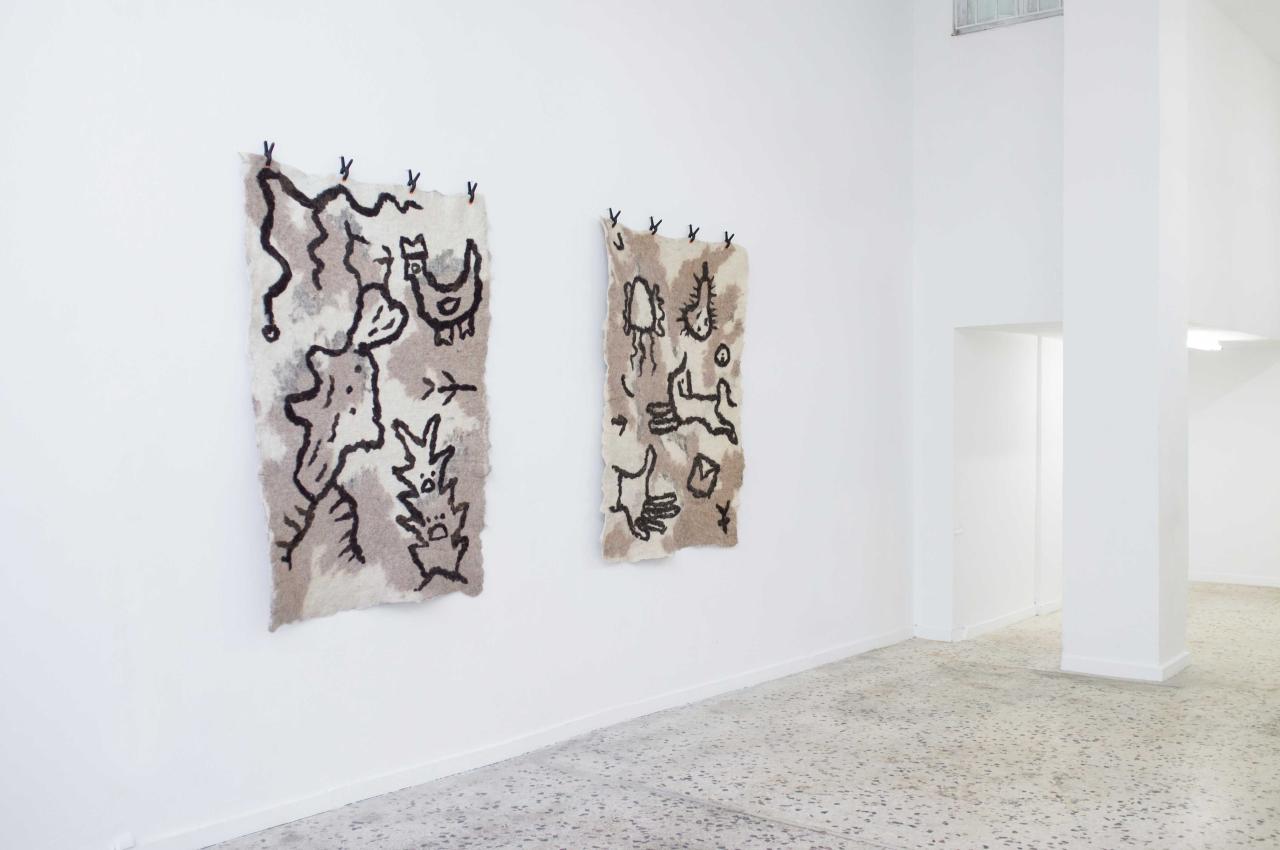
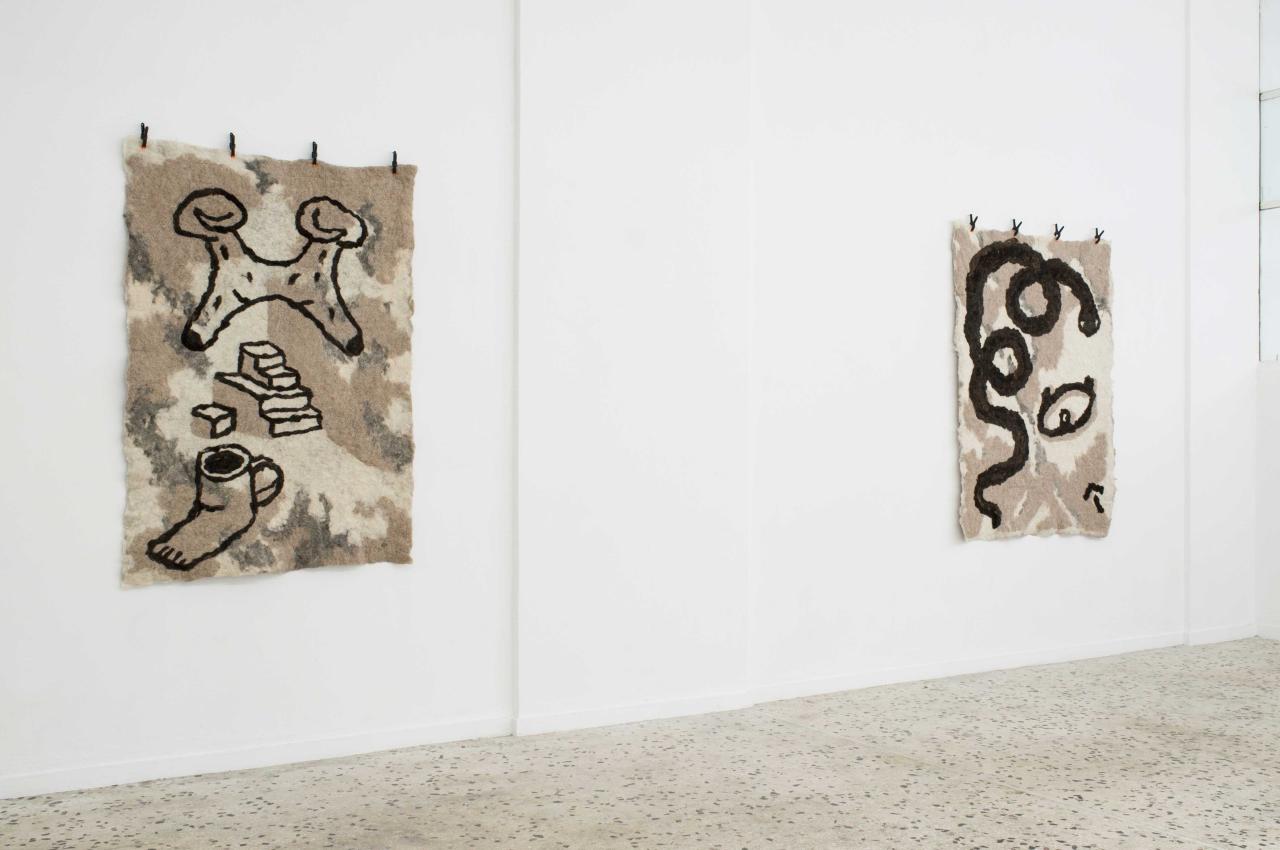
© All rights reserved - Célia Picard and Hannes Schreckensberger
This residency took place with support from the Austrian Federal Ministry of Arts, Culture, Civil Services and Sports.
Translation : Elaine Krikorian